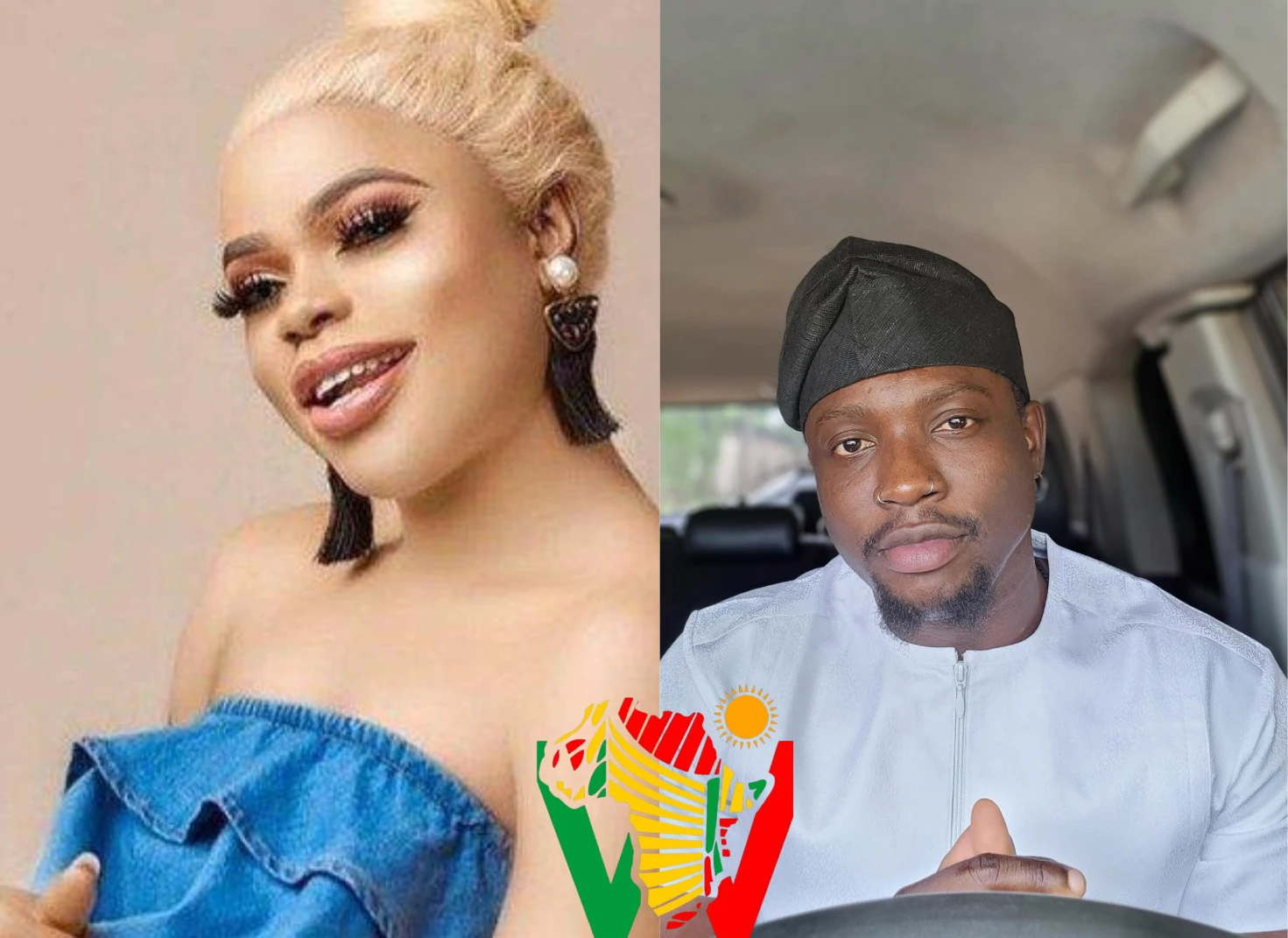VeryDarkMan accuses Bobrisky of legal misconduct and bribery in a viral video. Read more about the explosive allegations and their implications in this unfolding drama.

Nigerian human rights activist, Verydarkman, has sparked a heated controversy by calling out popular crossdresser Bob Risky over an alleged unpaid debt of ₦4 million. However, this financial dispute is just one part of a series of explosive accusations Verydarkman made in a recent video.
Here are the major allegations put forward by Verydarkman:
- Bribery Involving EFCC Officials
Verydarkman claimed that EFCC officials collected a bribe of ₦15 million to drop money laundering charges against Bob Risky, allowing him to escape legal consequences. - Jail Term in a Private Apartment
He further alleged that Bob Risky did not serve his jail term in prison, as required by law, but instead stayed in a private apartment arranged by the Comptroller General of Prisons, raising questions about special treatment. - Refusal to Pay ₦4 Million Debt
At the heart of the dispute, Verydarkman highlighted how Bob Risky allegedly refused to repay a ₦4 million loan he obtained from one of his lovers during his EFCC saga. Despite the creditor’s repeated requests, Bob Risky allegedly resorted to blackmail instead of paying up. - Involvement of Falz and His Father
Lastly, Verydarkman accused Nigerian rapper Falz and his father, Femi Falana (SAN), of attempting to secure a pardon for Bob Risky from the Federal Government, further adding complexity to the situation.
Watch video here:
Final Thought
The complexity of this case extends far beyond a simple financial dispute. With serious allegations of bribery involving high-ranking officials, questionable legal processes, and the involvement of well-known public figures like Falz and his father, this situation has the potential to become even more explosive. Verydarkman’s pursuit of accountability places him at the center of a legal and moral showdown that could have significant consequences for those involved.
Given the influence and status of individuals tied to the case—ranging from the EFCC to the Nigerian prison system, and even to prominent legal and entertainment personalities—the outcome remains uncertain. If these allegations are proven true, it could expose deep-rooted corruption and favoritism within Nigeria's justice system. However, with the powerful figures implicated, the case may also see strategic maneuvers to minimize public fallout. As the story develops, all eyes will be on how both the legal system and those involved handle these serious accusations.

